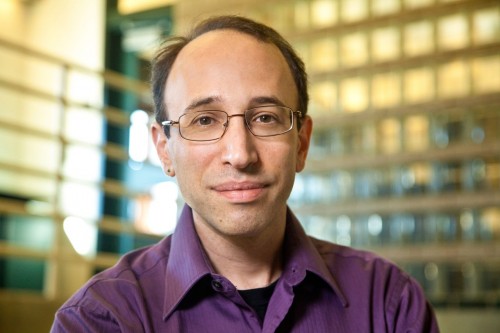
On October 2, 2012, Yale Computer Science Professor Daniel Spielman was awarded the MacArthur Fellowship. Spielman received the $500,000 no-strings-attached award, often referred to as the “genius grant,” to support the next five years of his research in theoretical computer science and applied math.
Spielman’s research focuses on the design of efficient algorithms, a field that has fascinated him since he was a teenager developing algorithms to solve mathematical puzzles. Some of his most important work deals with the development of new error-correcting codes, which has critical applications in the field of electronic communication. For example, when two people exchange messages by cellphone, some of the information is lost because of interference. Spielman’s algorithm can be used to reconstruct messages despite the loss of information. “The main limiting factor in the speed at which your cell phone can communicate is the amount of interference,” Spielman says. Creating better error-correcting codes is one of the most important ways to increase how quickly data can be sent to cell phones across the world.
Spielman also developed a revolutionary method of analyzing how quickly algorithms run, called “smoothed analysis,” for which he won two of computer science’s most prestigious prizes. With this new prize, Spielman says he will be able to spend more time on his research, and he hopes it will attract more attention and students to his field in the next half-decade.

